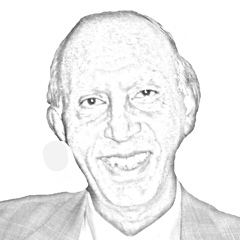Information Minister Fawad Chaudhary’s statement that the new government will not bow before extremist pressure, which surfaced when an Ahmadi, Dr Atif Mian, was appointed as adviser to the Prime Minister’s Economic Advisory Council (EAC), is a step in the right direction.
Contemporaneously nowhere in the world is religion or race the constitutional basis for the rights of citizens except Iran, Saudi Arabia, Israel and Pakistan. Invoking the State of Medina model as the inspiration, if religious minorities can be extended protection and enjoyment of most civil, political and welfare rights, then the limits such a model imposes on the rights of the minorities can be reduced to the minimum.
Ahmadis would, understandably, clamour for the repeal of the National Assembly decision of 1974 declaring them non-Muslims, but it is not clear if this strategy would get them very far. Allama Iqbal’s very strong ruling on this issue saw to that. Furthermore, no government of Pakistan in its right senses would dare to have the Sunni and Shia Ulema up in arms against them. Of course, the National Assembly can always rescind a law by passing a new one, but that remains to be seen.
There is of course the precedent of Jinnah appointing Sir Muhammad Zafrulla Khan as foreign minister, but there is also the counter precedent of Zafrulla refusing to participate in the funeral prayers of Jinnah. The reason he gave for his decision was the standard praxis of
Ahmadis not to take part in the funeral rites of even their parents and siblings if they are non-Ahmadis and Zafrulla simply just could not rise above that doctrinal restriction.
Later, Zafrulla explained that since Maulana Shabbir Ahmed Osmani, a Deobandi, was leading the prayers who did to recognise Ahmadis as Muslims, he could not possible stand behind Osmani and pray. The argument was valid in its own right, but all evidence suggests that on that day Barelvis, Deobandis, Wahhabis, Shias of all sorts, and I have heard even some Christians, stood behind Osmani because it was a solemn occasion of national importance.
In Stockholm, we take part in the funeral rites of our Hindu, Sikh and Christian friends and so do they when a Muslim friend of theirs departs from the world. Nothing beclouds the human mind and conscience more completely than religious self-righteousness. Jawaharlal Nehru once observed very acutely that communalism of the majority community leads to fascism while that of the minorities is equally, bad but it must be understood and tolerated.
In the 1946 election, the Ahmadis supported and voted for the Muslim League and Pakistan, and they could do this only if they were included among Muslims
In the defence of the Ahmadis, I can say that in the 1946 election, the Ahmadis supported and voted for the Muslim League and Pakistan and they could do this only if they were included among Muslims. Even the three Christian members of the Punjab Assembly voted for Pakistan, though it is a myth that their vote won Pakistan’s case on the Punjab. In accordance with the June 3, 1947 Partition Plan, the undivided Punjab Assembly was split into two blocs, one for the seventeen Muslim majority districts and the other for the twelve non-Muslim majority provinces. It was laid down unequivocally in the June 3, 1947 Plan that if either of the two blocs voted for the partition of the Punjab it would be partitioned and that is what happened. The bloc for the twelve non-Muslim districts voted for partitioning the Punjab. Therefore the 92-88 vote winning the Muslim League case is simply not true.
Ahmadis have rendered outstanding services to Pakistan and not only those rendered by Nobel Laureate Dr Abdus Salam, but many others who have served at the highest levels. At the same time, the Ahmadi establishment has been very aggressive in its mission to convert Muslims to their faith. On the other hand, the Agha Khanis and Bohras, who also hold beliefs quite different from Sunnis do not convert others to their faith and Itha Ashari Shias have their own idea of the State of Medina.
On the other hand, a fundamental clash on Khatam-e-Nabuwat (finality of the Prophethood of Prophet Muhammad PBUH) is inevitable and unresolvable so long as religion remains the core marker of identity and beliefs for Pakistanis.
Of course, freedom of religion and belief is a fundamental right and should be respected. Sadly, invoking the self-evident principles of modern human rights upheld by secular democrats will not get us very far, given the socio-economic realities of this country. We need to look at the objective realities and propose reform and change which is possible at this stage in history.
Right now, the decision to not pay any heed to the criticism of the extremists to the appointment of Atif Mian to the Prime Minister’s Economic Advisory Council should be appreciated and supported by all upright individuals. I have promised to write about the Swedish welfare model but the Prime Minister has urged he needs three months to get into the saddle properly. In all fairness, that is a very reasonable time limit.
The writer is Professor Emeritus of Political Science, Stockholm University; Visiting Professor Government College University; and, Honorary Senior Fellow, Institute of South Asian Studies, National University of Singapore. Latest publications, The Punjab Bloodied, Partitioned and Cleansed, *(Karachi: Oxford University Press, 2012), won the Best Non-Fiction Book Prize at the 2013 Karachi Literature Festival and the 2013 UBL-Jang Groups Best Non-Fiction Book Prize at Lahore and the Best Book on Punjab Award from Punjabi Parchar at the Vaisakhi Mela in Lahore, 2016. And, Pakistan: The Garrison State, Origins, Evolution, Consequences (1947-2011), Oxford, 2013. I can be reached at: billumian@gmail.com
Published in Daily Times, September 7th 2018.
